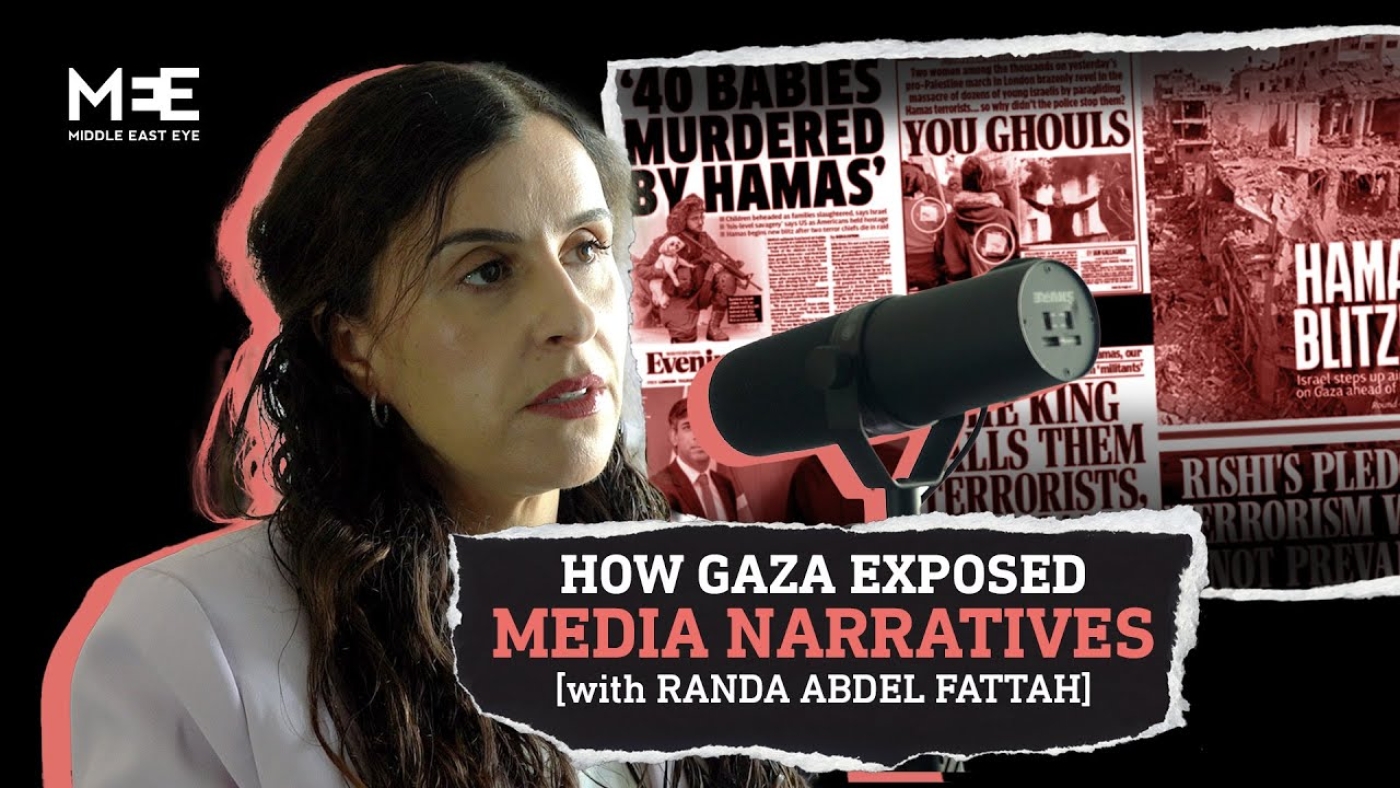How Western media erases Palestinian suffering
Published date: Jeudi 14 mars 2024 - 17:58
|
Last update: 8 mois 2 semaines ago
What does coverage of Gaza tell us about how the West sees the rest of the world?
A recent report into mainstream news coverage found Islamophobic and anti-Arab language was widely used in covering the events after October 7, and Israeli victims were described with emotive language 11 times more than Palestinian victims.
It also documented how pro-Palestinian voices were frequently vilified and treated with hostility during interviews. So why is this happening?
In our first episode of Season 3 of The Big Picture Podcast, we sit down with sociologist and writer Dr Randa Abdel Fattah, who speaks about her first-hand experience as an outspoken Palestinian academic.
She argues in her work that media narratives paint Palestinians and Arabs as ‘unreasonable, unrestrained and uncivilised’ as a way of maintaining a Western colonial order.
Subscribe and listen to The Big Picture on all podcast platforms: https://thebigpicture.buzzsprout.com/
A recent report into mainstream news coverage found Islamophobic and anti-Arab language was widely used in covering the events after October 7, and Israeli victims were described with emotive language 11 times more than Palestinian victims.
It also documented how pro-Palestinian voices were frequently vilified and treated with hostility during interviews. So why is this happening?
In our first episode of Season 3 of The Big Picture Podcast, we sit down with sociologist and writer Dr Randa Abdel Fattah, who speaks about her first-hand experience as an outspoken Palestinian academic.
She argues in her work that media narratives paint Palestinians and Arabs as ‘unreasonable, unrestrained and uncivilised’ as a way of maintaining a Western colonial order.
Subscribe and listen to The Big Picture on all podcast platforms: https://thebigpicture.buzzsprout.com/
Middle East Eye propose une couverture et une analyse indépendantes et incomparables du Moyen-Orient, de l’Afrique du Nord et d’autres régions du monde. Pour en savoir plus sur la reprise de ce contenu et les frais qui s’appliquent, veuillez remplir ce formulaire [en anglais]. Pour en savoir plus sur MEE, cliquez ici [en anglais].





